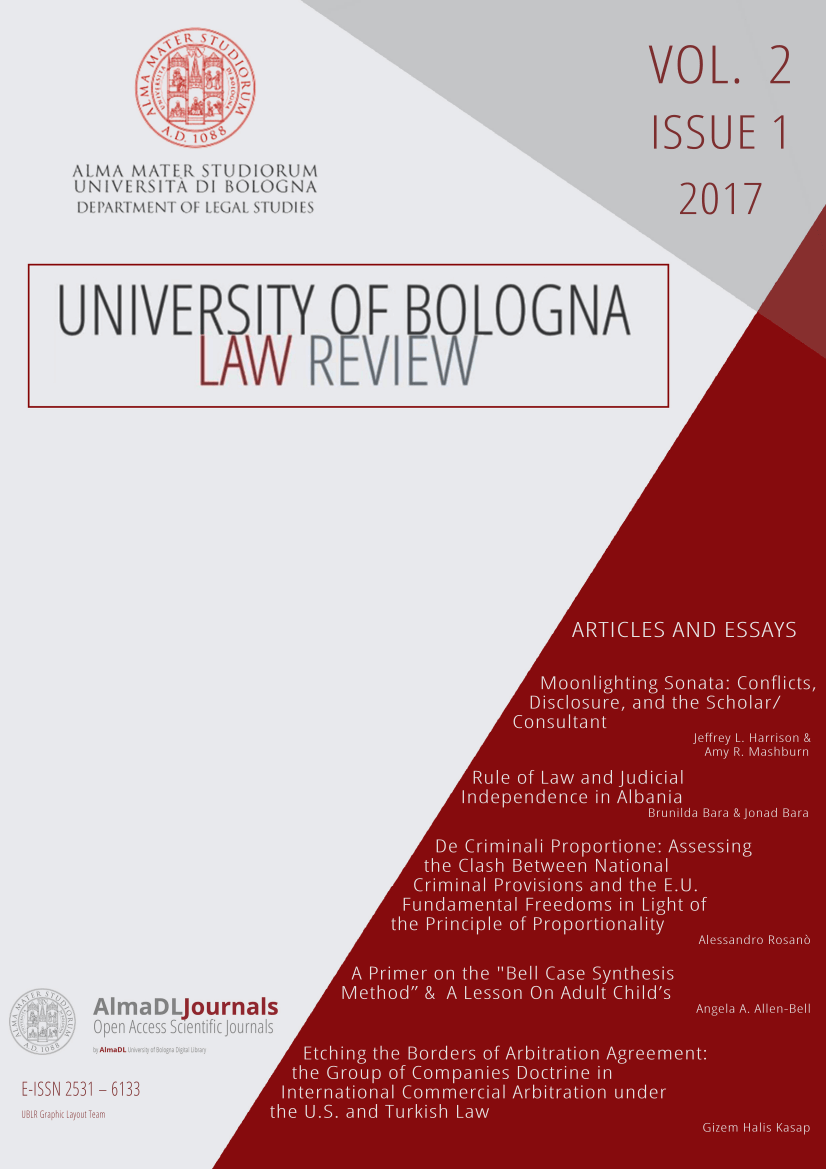De Criminali Proportione: On Proportionality Standing Between National Criminal Laws and the E.U. Fundamental Freedoms
DOI:
https://doi.org/10.6092/issn.2531-6133/7180Keywords:
Principle of Proportionality, European Court of Justice, Free Movement of Persons, Free Movements of Goods, Free Movement of ServicesAbstract
Over time, the European Court of Justice has had to clarify whether and under what circumstances national laws may put one of the four fundamental freedoms of the internal market aside in cases concerning clashes between national regulations and said freedoms. The answers provided by the E.C.J. have always focused on the centrality of the principle of proportionality, expressing the idea that a balance between conflicting interests and means to protect those interests must be reached. An a priori protection of the fundamental freedoms has been refused in favor of a more concrete kind of approach. This article deals with this topic, assessing the relationship between proportionality and free movement of persons, goods, and services. Also, it is checked whether, thanks to the principle of proportionality, the E.C.J. may achieve the role of a European Constitutional Court that can protect the E.U. interests without putting national interests aside.
Downloads
Downloads
Published
How to Cite
Issue
Section
License
Copyright (c) 2017 Alessandro Rosanò
The copyright of all the manuscripts on this journal belongs to the respective authors.
This journal is licensed under a Creative Commons Attribution 4.0 International License (full legal code).
See also our Open Access Policy.












